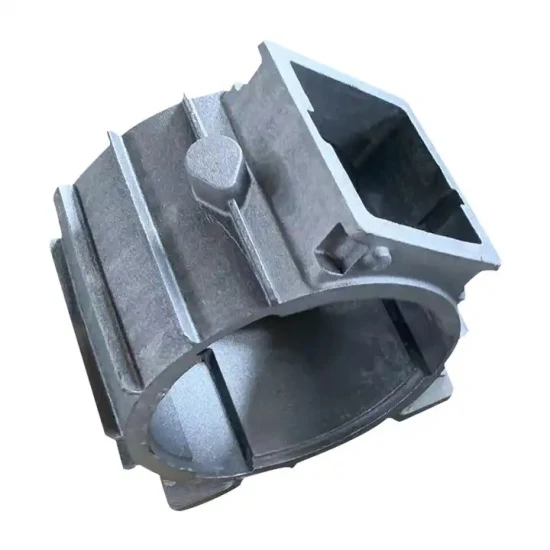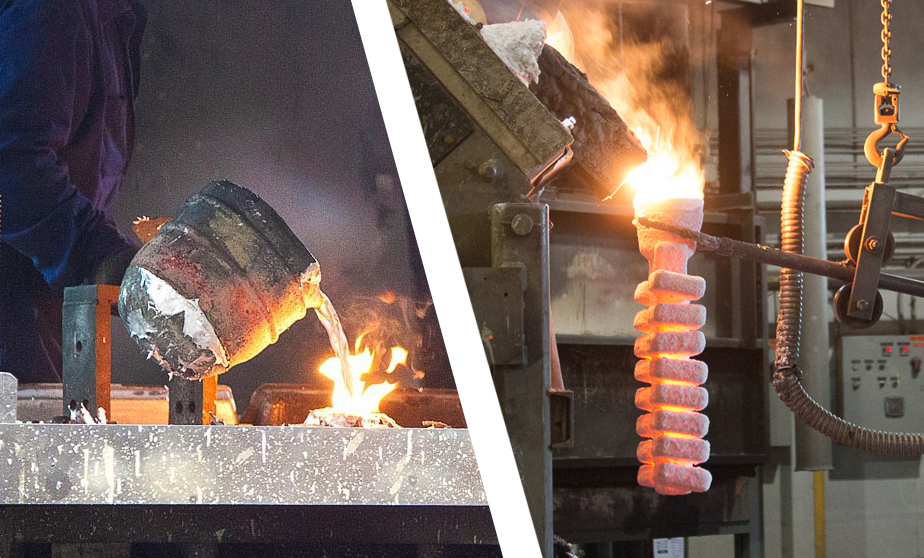The Stahl Specialty Company PDFs
The Stahl Specialty Company PDFs
Blog Article
Stahl Specialty Company Fundamentals Explained
Table of ContentsGet This Report on Stahl Specialty CompanyThe Buzz on Stahl Specialty Company3 Easy Facts About Stahl Specialty Company Explained4 Simple Techniques For Stahl Specialty CompanyThe 8-Minute Rule for Stahl Specialty Company
The subtle distinction hinges on the chemical material. Chemical Contrast of Cast Light weight aluminum Alloys Silicon advertises castability by decreasing the alloy's melting temperature and boosting fluidness throughout spreading. It plays a crucial role in enabling intricate mold and mildews to be filled up properly. In addition, silicon contributes to the alloy's stamina and use resistance, making it useful in applications where longevity is essential, such as automobile components and engine elements.It also enhances the machinability of the alloy, making it less complicated to refine into completed products. In this way, iron adds to the total workability of light weight aluminum alloys.
Manganese adds to the strength of aluminum alloys and enhances workability. It is commonly used in wrought light weight aluminum items like sheets, extrusions, and profiles. The existence of manganese aids in the alloy's formability and resistance to splitting during fabrication procedures. Magnesium is a light-weight element that gives stamina and impact resistance to light weight aluminum alloys.
It permits the manufacturing of lightweight components with excellent mechanical homes. Zinc improves the castability of aluminum alloys and aids regulate the solidification procedure throughout casting. It boosts the alloy's stamina and solidity. It is commonly located in applications where intricate shapes and fine information are essential, such as decorative castings and certain automobile components.
Stahl Specialty Company for Dummies
Due to the fact that aluminum-silicon alloys have excellent casting properties, high gas residential or commercial properties, straightforward procedures, and exceptional rust resistance, aluminum-silicon alloys are most typically made use of in the die-casting sector in your home and abroad. At the same time, aluminum-silicon alloys are additionally fairly early and commonly recognized alloys created and utilized in die-casting. After continuous study and enhancement, a lot of the present international mainstream aluminum-silicon alloys have actually been completed and are nothing greater than A356, A360, A380, ADC12, B390, and A413.
The key thermal conductivity, tensile strength, return strength, and elongation vary. Among the above alloys, A356 has the greatest thermal conductivity, and A380 and ADC12 have the lowest.

Getting The Stahl Specialty Company To Work
In precision spreading, 6063 is well-suited for applications where detailed geometries and high-grade surface coatings are extremely important. Examples consist of telecommunication enclosures, where the alloy's premium formability enables for sleek and cosmetically pleasing designs while keeping structural stability. Similarly, in the Lights Solutions market, precision-cast 6063 parts create sophisticated and efficient illumination components that require complex forms and good thermal efficiency.
(https://forums.hostsearch.com/member.php?272859-stahlspecialc)
It causes a finer surface coating and better deterioration resistance in A360. Additionally, the A360 exhibits exceptional elongation, making it excellent for read the article complicated and thin-walled parts. In precision spreading applications, A360 is fit for industries such as Customer Electronic Devices, Telecommunication, and Power Tools. aluminum foundry. Its boosted fluidness permits elaborate, high-precision parts like smart device casings and communication gadget real estates.

In precision spreading, aluminum 413 shines in the Customer Electronics and Power Equipment industries. It's generally utilized to craft intricate elements like smartphone real estates, camera bodies, and power device casings. Its accuracy is amazing, with limited tolerances as much as 0.01 mm, guaranteeing remarkable product setting up. This alloy's superior rust resistance makes it an excellent option for exterior applications, ensuring resilient, sturdy products in the discussed sectors.
How Stahl Specialty Company can Save You Time, Stress, and Money.
The light weight aluminum alloy you select will significantly influence both the spreading process and the properties of the final item. Because of this, you must make your choice very carefully and take an educated approach.
Figuring out the most suitable aluminum alloy for your application will certainly mean considering a wide variety of features. The first classification addresses alloy features that affect the manufacturing procedure.
The alloy you choose for die casting directly influences several aspects of the casting procedure, like how simple the alloy is to collaborate with and if it is vulnerable to casting flaws. Warm splitting, additionally called solidification fracturing, is a typical die casting defect for light weight aluminum alloys that can lead to inner or surface-level tears or splits.
The Greatest Guide To Stahl Specialty Company
Specific aluminum alloys are much more vulnerable to hot cracking than others, and your selection needs to consider this. An additional usual issue discovered in the die casting of aluminum is die soldering, which is when the actors adheres to the die wall surfaces and makes ejection difficult. It can harm both the actors and the die, so you must try to find alloys with high anti-soldering residential or commercial properties.
Rust resistance, which is already a notable feature of aluminum, can differ significantly from alloy to alloy and is an important particular to think about depending on the ecological conditions your item will be subjected to. Wear resistance is one more residential property typically looked for in aluminum items and can distinguish some alloys.
Report this page